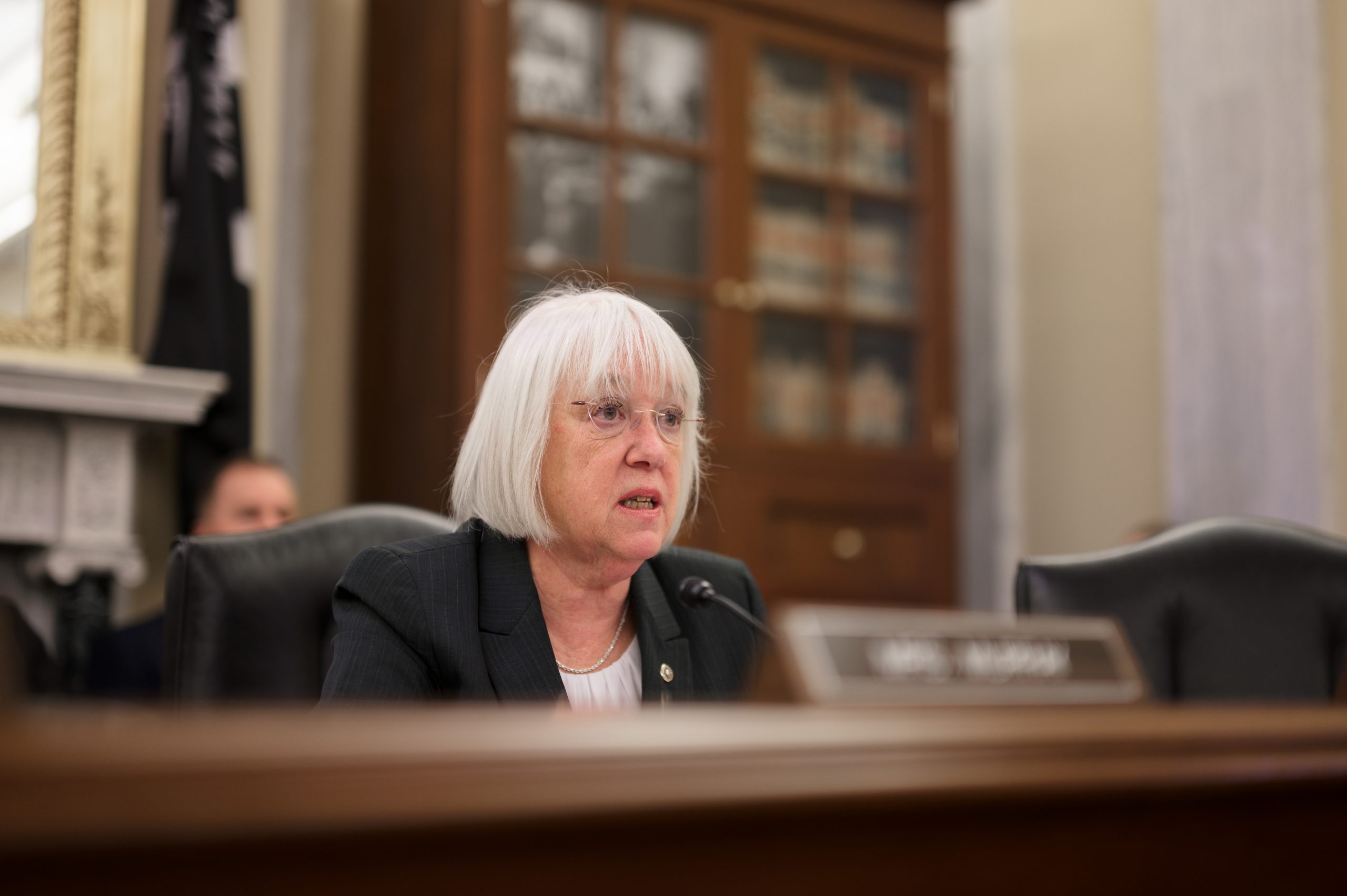Murray’s Beryllium Testing Fairness Act was added to the must-pass defense bill in an overwhelming 96-2 vote today, its inclusion means it is likely to become law less than a year after Murray first introduced the bill
ICYMI: Senator Murray Meets with Hanford Workers, Announces Bill to Help Workers Access Care for Beryllium Exposure
***VIDEO of Senator Murray speaking on Senate Floor***
Washington, D.C. – Today, legislation introduced by U.S. Senator Patty Murray (D-WA) to help more Hanford workers and nuclear weapons complex workers across the country access care for diseases caused by beryllium exposure was adopted via amendment and incorporated into the must-pass National Defense Authorization Act (NDAA) during consideration on the Senate Floor. Murray announced the legislation last summer while meeting with Hanford workers.
Currently, federal laws place an overly burdensome proof of illness requirement on nuclear weapons complex workers, preventing many workers from getting the care they need for diseases caused by beryllium exposure. Senator Murray’s bill would update these testing requirements consistent with the latest science to ensure that more workers—past and present—dealing with health issues caused by beryllium exposure receive the benefits they need and deserve. Senator Murray’s legislation was incorporated into the NDAA via amendment in an overwhelming bipartisan vote of 96-2.
“During World War II, the federal government established the Hanford site in Central Washington state to produce the plutonium that our nation needed for nuclear weapons. To this day, workers are on the job cleaning up that site. It’s important—but dangerous—work. And one of those dangers is beryllium exposure that causes serious respiratory diseases,” Murray said on the Senate Floor today. “Congress passed legislation providing care to those working on our nuclear arsenal—but here’s the thing: not everyone who needs these critical medical benefits for beryllium exposure can get them today. Right now, people have to jump through very costly, unnecessary hoops, and even then they could be denied—all because the statute is outdated.
“Right now, a beryllium blood test that is ‘borderline’ does not count towards a diagnosis—even when you are experiencing the effects of beryllium exposure, or when it is your third such borderline result,” Murray continued. “That is just not right—and by the way, it is not consistent with the current science either! My amendment would update the statute—and bring it in line with an OSHA rule finalized under the last Administration—so that more workers can more easily get the care they need. And it is a fiscally responsible measure—CBO estimates it will cost less than half a million dollars over ten years, if anything at all. But it will make a real difference for these workers who have sacrificed so much for our country.”
For decades, beryllium was used to cap nuclear rods, including at the Hanford site. Beryllium is a heavy metal, exposure to which can cause “beryllium sensitization” or, in more advanced cases, Chronic Beryllium Disease (CBD). CBD leads to scarring on the lungs causing many other respiratory problems, including an increased incidence of lung cancers. Currently, the Department of Labor’s Office of Workers Compensation Programs (OWCP) administers the Energy Employees Occupational Illness Compensation Act (EEOICPA), through which Hanford workers dealing with issues stemming from their exposure to beryllium receive care and benefits.
As the law is currently written, someone must present one abnormal blood test and evidence of a lung disease in order to receive benefits and care for their illness through the EEOICPA. Many workers or former workers, however, receive “borderline” test results for years while symptoms manifest or they never get the “abnormal” result at all. Murray’s legislation, which was adopted via amendment and incorporated into the must-pass NDAA today, would amend the EEOICPA to count three “borderline” results in three years as sufficient evidence to receive a diagnosis of beryllium sensitivity. This provision would apply to former, current, and future workers so no one would face unfair barriers to care.
Murray’s legislation would also extend the Department of Labor’s independent Advisory Board on Toxic Substances and Worker Health through 2029. The Board is charged with advising the Secretary of Labor on matters relating to workplace safety for workers onsite with toxic substances and is instrumental in helping improve the federal compensation process for workers, including those at Hanford, to gain the health care and benefits they deserve.
Murray’s legislation is supported by the Hanford Worker Engagement Center, National Jewish Health, Department of Environmental and Occupational Health, Colorado School of Public Health at the University of Colorado, and the Center for Health, Work & Environment, Colorado School of Public Health at the University of Colorado.
A one-pager on the Beryllium Testing Fairness Act is HERE.
Photos and video of Senator Murray meeting with Hanford workers and health experts to discuss her bill last August are HERE.
###


